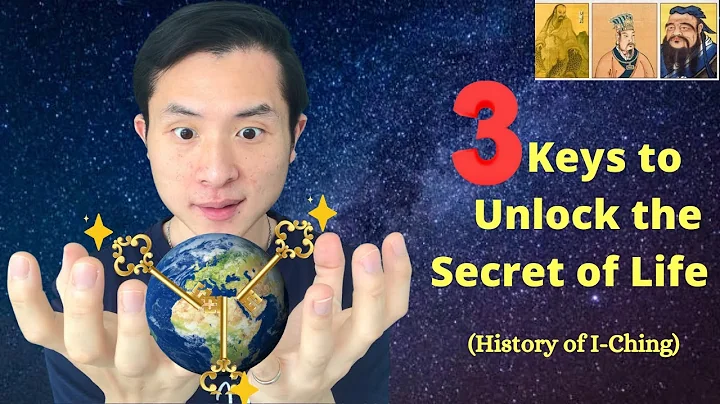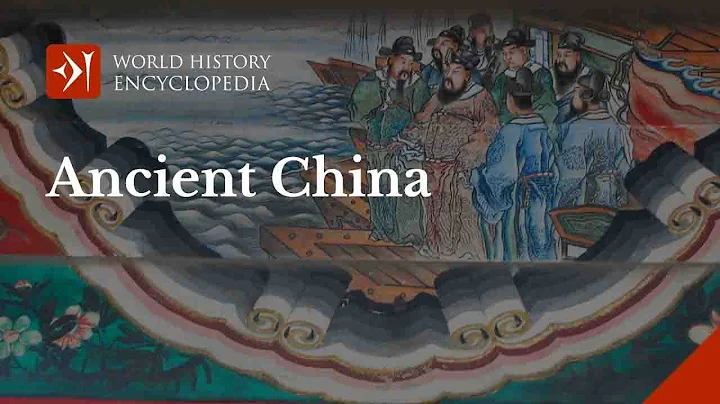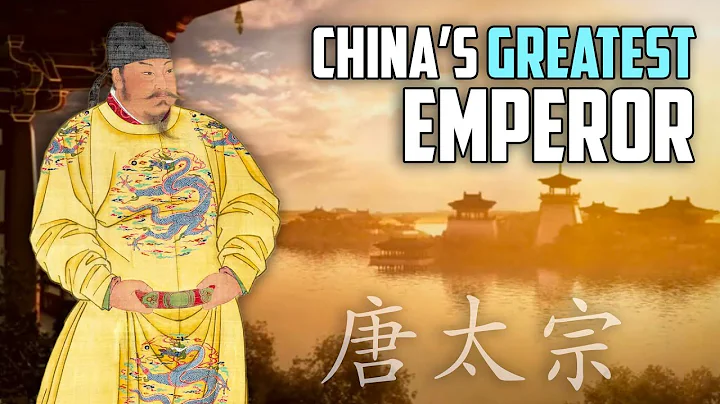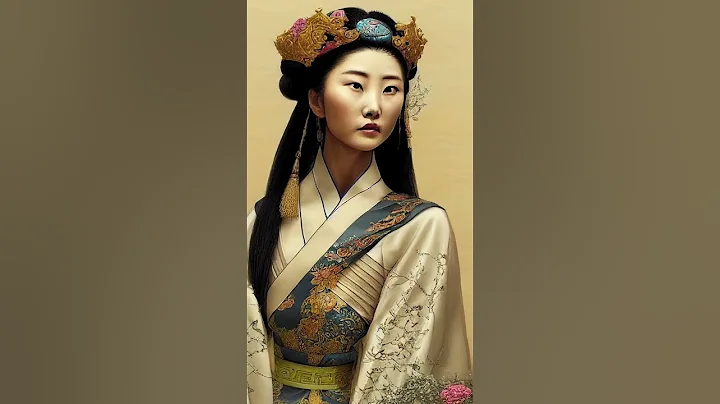Foreword
The rule of Taikang, also known as the Taikang prosperous age in history, the rule of Taikang refers to the period when Emperor Wu of Jin Dynasty was in power. The Jin Dynasty took Taikang as the reign name. During this period, , there was a brief flourishing phenomenon in the Jin Dynasty. From today's view of history, the historians generally believe that the Taikang rule refers to the flourishing phenomenon that occurred in the short 10 years from 280 AD to 289 AD. In the long history of history, the rule of Taikang was like an epiphyllum. It appeared briefly in the history of the Western Jin Dynasty and brought a precious and short-lived prosperity to the Western Jin Dynasty and the people of the Western Jin Dynasty.

▲The Army of the Western Jin Dynasty
The Wisdom of Emperor Wu of the Jin Dynasty
1. Governing by doing nothing
Governing by doing nothing is originally Taoist governance thought. Since the emperor of the Han Liu Bang, ruling by doing nothing has been applied by rulers in governing the country. Governance by doing nothing can usually make the country prosperous and strong after being used in governing the country, and the rule of Taikang is no exception. In order to help the country get out of the turbulent situation as soon as possible, Emperor Wu of the Jin Dynasty decided to use the method of governing by doing nothing to govern the country. With the support of the policy of governing by doing nothing, the Western Jin Dynasty recovered from the turbulent predicament in just a few years. wake. Since Cao Wei , in order to compete with Soochow and Shu Han for the world, the Cao Wei Dynasty has blindly exploited and oppressed the people, and transferred a large amount of material needs and wealth needs to the shoulders of the people.
During the long-term rule of exploitation and oppression, the people of the world were in dire straits and their lives were bleak. From a certain perspective, during the Cao Wei period, although the country had strong military power, this power came at the expense of the people's happy life. From a people-oriented historical perspective, this kind of country was strong and not worth promoting. During the period of Emperor Wu of Jin Dynasty, the world of Jin Dynasty was very turbulent, and the social situation had not yet emerged from the exploitative rule of Cao Wei. In order to quickly restore social vitality and quickly solve people's livelihood problems, Emperor Wu of Jin decided to govern the world with the idea of rule by inaction.

▲People in troubled times
Emperor Wu of Jin's policy has historical origins. After ascending to the throne, Emperor Wu of Jin knew that the world of Jin Dynasty was very similar to the early years of Han Dynasty . As early as the early Han Dynasty, when Liu Bang faced the ruined Han Dynasty, he quickly restored the national power of the Han Dynasty with the help of the essence of Huang Lao's thought. This essence was to rule by inaction. Since the Spring and Autumn and Warring States , governing by inaction as a governance thought has gradually become popular in A Hundred Schools of Thought . However, unfortunately, hundreds of years of conquests in the Spring and Autumn and Warring States did not make this governance thought become the mainstream thought of the ruling class.

▲Daily life of Jin people
What is distinctive about the idea of governing by doing nothing is that it pursues the livelihood of the people, the accumulation of national wealth, and the happy life of ordinary people. During the feudal autocratic monarchy period, in order to pursue the interests of rule, many feudal monarchs blindly regarded the people as national production machines, exploited and oppressed the people, and squeezed the people's wealth. In the end, the people were in dire straits and social development reached a deadlock. The idea of governing by doing nothing can solve these problems very well. Therefore, in my country's feudal historical society, whenever the people of the country were in trouble, rulers tended to adopt the concept of governing by doing nothing in order to restore the country's national strength.

▲The Western Jin Army
2, Strict Rule of Law
During the period of Emperor Wu of Jin Dynasty, although the Jin Dynasty mainly adopted the idea of rule by inaction, it did not give up its strict requirements on national laws. Feudal society's ruling ideology developed into the Jin Dynasty and has been improved a lot. The hundreds of schools of thought that evolved from the Spring and Autumn Period and the Warring States Period have been gradually realized. Emperor Wu of Jin Dynasty knew very well that it was not enough to govern the country with the idea of ruling by doing nothing. If the country wanted to achieve long-term peace and stability, it must strictly enforce the rule of law. Only under strict laws can the citizens be restrained.
To this end, Emperor Wu of Jin promulgated a series of laws, the most famous of which is the "Tai Shi Code". In this law, Emperor Wu of Jin cleverly used Confucian and Taoist ideas to apply these two ruling thoughts to in national governance.It can be seen that Emperor Wu of Jin was a king who was well versed in the way of governing the country. He was not only able to use the idea of ruling by doing nothing to recuperate the country, but he was also able to skillfully borrow the ideas of Confucianism and Legalism and apply them to the governance of the country. .
From this perspective, Emperor Wu of Jin was indeed an outstanding king. In the history of our country, because our country has always adopted a ruling model in which imperial power is greater than religious power, our kings throughout the dynasties have paid great attention to the control of various ideas. In the history of our country, an excellent king is often able to skillfully use various schools of thought to control them and bring out their advantages while governing the country. There is no doubt that Emperor Wu of Jin was exactly such a king.

▲The Rebellion of the Eight Kings of the Western Jin Dynasty
3. The foundation of the country - the people's hearts
After the establishment of the Western Jin Dynasty, in order to consolidate his rule, Emperor Wu of the Jin Dynasty made many meritorious officials kings and marquises. Under a series of wise tactics of Emperor Wu of Jin, many heroes were willing to follow Emperor Wu of Jin. According to historical records, after Emperor Wu of Jin ascended the throne, he created 57 kings and more than 500 princes in just a few years. All these measures taken by Emperor Wu of Jin were to win over the people. In addition, with the demise of the Shu Han, many Shu Han residents were unwilling to accept the rule of the Jin Dynasty. In the early days of the establishment of the Jin Dynasty, peasant uprisings continued in the Shu Han area. In order to stabilize the Shu Han army and people, Emperor Wu of Jin sent the original Shu Han ministers to the Shu Han land and allowed them to continue to serve as Shu Han officials. This approach of Emperor Wu of Jin won over the Shuhan residents and stabilized the Shuhan officials.
It can be seen that when Emperor Wu of Jin was in charge of the Western Jin Dynasty, he paid great attention to stabilizing the people's hearts. For a feudal country, public sentiment directly determines whether a country is prosperous or strong. If a country can get unanimous support from the people, the country can usually become strong and prosperous. On the contrary, if within a country, the people generally oppose the imperial power, the country will inevitably collapse. Various facts in history have repeatedly proved this historical law. In the long river of history, it is the people's will that ultimately guides the direction of the river of history.

▲Eight Kings Revolted
The short-lived Taikang prosperous age
1, the short-lived prosperous age
Emperor Wu of Jin Dynasty's Taikang rule began in 280 AD, the second year after the founding of the Western Jin Dynasty. After the establishment of the Western Jin Dynasty, the world was once again unified. Foreign troubles in the Western Jin Dynasty were gradually eliminated, and many ministers in the court began to advocate focusing on domestic affairs. Starting from the second year after the founding of the Western Jin Dynasty, Emperor Wu of the Jin Dynasty began to pay attention to production and strengthen water conservancy construction. Thanks to the efforts of Emperor Wu of the Jin Dynasty, the Western Jin Dynasty lived and worked in peace and contentment in just two years, with cattle and horses everywhere. Although in history, the Taikang Age only existed for 9 years, it has indelible significance in the entire history of the Western Jin Dynasty.
Since its establishment, the Western Jin Dynasty has been in a weak state due to various reasons. The Rebellion of the Eight Kings of the Western Jin Dynasty brought a devastating blow to the Western Jin Dynasty. In history, people generally do not think highly of the Western Jin Dynasty. However, Taikang's short nine-year prosperity restored the dignity of the Western Jin Dynasty in Chinese history. Throughout Chinese history, there have been several dynasties, but only a few have prospered. It can be seen that in the historical process of the Western Jin Dynasty, the prosperous age of Taikang had a unique significance. This unique significance lies in that it found a sense of value for the existence of the Western Jin Dynasty in the long history of history.

▲ Pastoral life in the Western Jin Dynasty
2, The fall of Emperor Wu of Jin
The reason why the Taikang rule disappeared in just nine years largely depends on the fall of Emperor Wu of Jin. According to historical records, Emperor Wu of Jin lived a very extravagant life in his later years. Emperor Wu of Jin's personal decadence directly led to the corruption of the Western Jin Dynasty. According to historical records, in the later years of Emperor Wu of the Jin Dynasty, the Western Jin Dynasty was full of corruption. Officials at all levels ignored government affairs. The whole country was ineffective. Extravagance was prevalent. The entire Western Jin Dynasty was full of decay. During the period of feudal society, the monarch's personal actions directly affected the fate and development of the country. Feudal society is essentially a family world. The characteristic of family rule is that the behavior of the monarch and the royal family will directly determine the future and destiny of the dynasty. The country and the monarch will both prosper and suffer.This is the drawback of the rule of feudal society, and it is also the curse that the rulers of feudal society cannot escape.
The reason why Taikang's prosperity was short-lived and declined in just nine years is closely related to the personal degradation of Emperor Wu of Jin. In the Western Jin Dynasty, after the fall of Emperor Wu of Jin, the social atmosphere went downhill and failed to recover. In the following decades, the Western Jin Dynasty's national power was exhausted, and various nobles rose up. The Rebellion of the Eight Kings broke out, and the Western Jin Dynasty came to an end. As a unified dynasty, the Western Jin Dynasty ended the hundreds of years of chaos since the Eastern Han and once again established a unified dynasty on the land of China. According to the laws of Chinese history, whenever a unified dynasty is established, there will usually be a prosperous age in the early days of the dynasty. Unfortunately, the Taikang prosperous age, the pride of the Western Jin Dynasty, only lasted for 9 years. I have to admit that as a prosperous era, the Taikang rule was unfortunate, and the people under the Western Jin Dynasty were also unfortunate.

▲The good life of the Western Jin Dynasty
Summary
The emergence of the Taikang prosperous era reflected the early ruling wisdom of the rulers of the Western Jin Dynasty, but unfortunately, as a prosperous era, it only existed in the new history for 9 years. The short-lived Taikang era tells us this historical truth: There is no ever-powerful dynasty, no ever-powerful era, and no ever-powerful monarch; only ordinary people are the most fundamental historical facts for social development. If any dynasty or king does not regard the people as treasures, its destiny will inevitably decline.
References:
"Historical Records"
" Zizhi Tongjian "
" Jinshu "





















